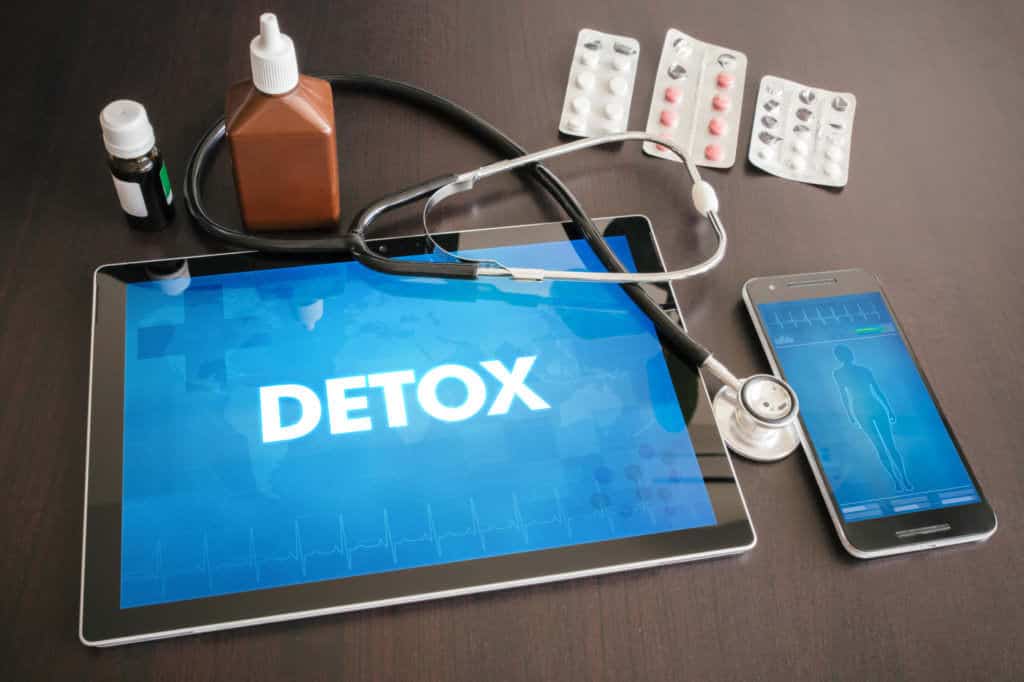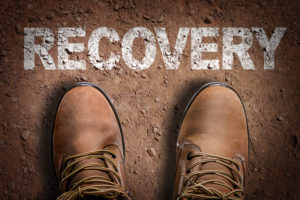According to estimates from the Centers for Disease Control and Prevention, over 90 Americans die each day from an overdose of opioid drugs. In addition to being addictive, these drugs are also notoriously difficult to detox from, especially when users are trying to go “cold turkey” and quit the drugs on their own.
The physical and emotional withdrawal symptoms are so severe that people will do just about anything to make them stop. That includes taking another dose of the very poison that put them in that predicament in the first place.
What are the symptoms of detox? What’s the best way to minimize them to ensure that you get the drug out of your system? How are detox and rehab different?
Join us as we discuss the answers to these questions — and talk about where to turn for help.
Detox vs. Rehab: What’s the Difference?
Many people think these terms are interchangeable, but they aren’t. They do often go hand in hand, though. Many times both processes are necessary for the individual to recover from addiction. Let’s take a look at each in turn.
You can think of detox as a treatment that addresses the physical aspects of substance abuse. Long-term drug or alcohol use changes the brain and the nervous system in fundamental ways.
Over time, our body gets used to the “new normal” of being high.
When that drug or alcohol use stops all of a sudden, your physiology can be affected in dramatic, debilitating ways. (We’ll get into those a little later.)
Rehab can’t take place until after the detox process is complete. In rehab, the recovering addict works with therapists, other specialists, and his or her own peers. The goal is to explore the psychological aspects of drug addiction.
In rehab, you will learn what factors contributed to your drug use and abuse. And you will learn how to live and even thrive without those drugs. You will also learn how to combat cravings and tend to your emotional health.
Many rehabilitation facilities offer practical help, too. This could include sober living skills like job interviewing, budgeting, and cooking.
Medically Supervised Detox
When we used the term “poison” above, it was intentional. Drugs are poisons, even though they can provide enjoyable effects.
But think back to the first time you tried heroin, drank whiskey, or even smoked a cigarette. Chances are the unpleasant aspects of the experience outweighed the enjoyable ones. You felt dizzy, nauseated, disoriented, unsteady on your feet.
Over time, your body adjusted to being poisoned. Then it took more and more of the substance to feel the same effects.
The symptoms of withdrawal are severe and even dangerous if you quit without medical intervention. That’s what medically supervised detox is essential.
Medical professionals will ensure that you stay safe as the drugs leave your system. They will take steps to reduce the pain, discomfort, fear, and anxiety you might otherwise experience. This can help control the cravings for your poison of choice.
You will be monitored around the clock, just in case anything goes awry. You may be given anti-anxiety medications, pain relievers, or other medications. Medications are meant to see you through the worst of the physical symptoms.
A Timeline of Detox
The exact timing of when you’ll experience the symptoms of detox depends on what drug(s) you are addicted to and how high your tolerance is. Your physical health is another variable that will affect detox.
However, here’s a rough idea of what to expect.
Acute withdrawal begins to set in several hours after you take your last dose of drugs. It peaks at around three to five days, and it’s usually at this point that patients feel well enough physically to begin rehab.
However, know that acute withdrawal can last for up to four weeks following the last drug use.
Post-acute withdrawal can continue for up to two years. Your body will be through the worst of the withdrawal, and you can generally function just fine.
It’s still likely that you will experience some symptoms of withdrawal, however. For example, you could have mood swings, anxiety, low or fluctuating energy, low enthusiasm, difficulty concentrating, and insomnia.
In rehab, you’ll develop a skill set to deal with these symptoms.
So, What Are the Physical Symptoms of Detox?
Forewarned is forearmed. So here are some of the physical issues you can expect as you go through detox.
Intestinal Distress
Since your body is working hard to rid itself of toxins and process a great deal of waste, you are likely to experience gastrointestinal problems.
These may include gas, bloating, stomach cramps, stomach upset, diarrhea, constipation, nausea, and vomiting.
Skin Issues
Besides the digestive tract, the only other way for toxins to leave your body is through your pores. During withdrawal, you will likely sweat, itch, and develop a rash or hives. You may feel a tingling sensation, or experience an extremely unpleasant “creepy-crawly” feeling, as though bugs are crawling over your body.
Aches, Pains, and Fatigue
Dull headaches, splitting headaches, or even migraines are common in detox. Your head may ache because you are dehydrated or because of muscle tension the neck or shoulders.
Muscle aches may also occur. You could feel as though you’ve been hit by a Mack truck. Your body is working so hard to expel toxins that fatigue is common during withdrawal as well. Take it easy, and know that this too shall pass.
Mood Swings, Depression, and Anxiety
Changing your lifestyle to exclude drugs or alcohol is terrifying. It can be heartbreaking, as well. Know that riding a rollercoaster of emotions is par for the course. You’ll feel elated and excited to be sober one day, devastated and depressed the next.
Luckily, when you undergo medically supervised detox and then rehab with caring professionals, you’ll be in good hands.
Ready to Detox from Drugs?
If you’re ready to release yourself from the death grip of substance abuse — but scared of the symptoms of detox — contact the compassionate professionals at Northbound for help. We can explain the process, answer your questions, and help guide you along the path to recovery.
Author
-

President, CEO & Founder at Northbound Treatment Network
Paul Alexander is the CEO, President & Founder of Northbound Treatment Network in Newport Beach, California. He believes wholeheartedly in transformational leadership, organizational health and effective, fully integrated substance use disorder and mental health treatment. With over 27 years of experience in behavioral healthcare, Paul has extensive knowledge of “in vivo” treatment modalities, clinical development, operations, strategy, marketing and financial planning. He has been widely recognized for his development of collegiate-based residential treatment programs for students in recovery and authored a research study at The University of California confirming this modality’s effectiveness.
Paul’s comprehensive professional experience, willingness to innovate, and emphasis on organizational health are vital factors in Northbound’s continued success. Paul received his Certified Addiction Treatment Specialist training at Saddleback College in Mission Viejo, CA, and was awarded Outstanding Alumni Service Award in 2002. Paul holds a Bachelor of Arts degree in Criminology, Law and Society, Summa Cum Laude, from University of California, Irvine, and a Juris Doctorate degree from Loyola Law School of Los Angeles. Paul currently serves on The National Association of Addiction Treatment Providers (NAATP) board. In addition, he serves on The Family Recovery Foundation board and The CarePossible board in Orange County; both organizations are committed to raising funds for family recovery and treatment for former military personnel. Paul is in recovery himself and lives in Orange County with his wife Silvana and his two young sons, Noah and Dean.










